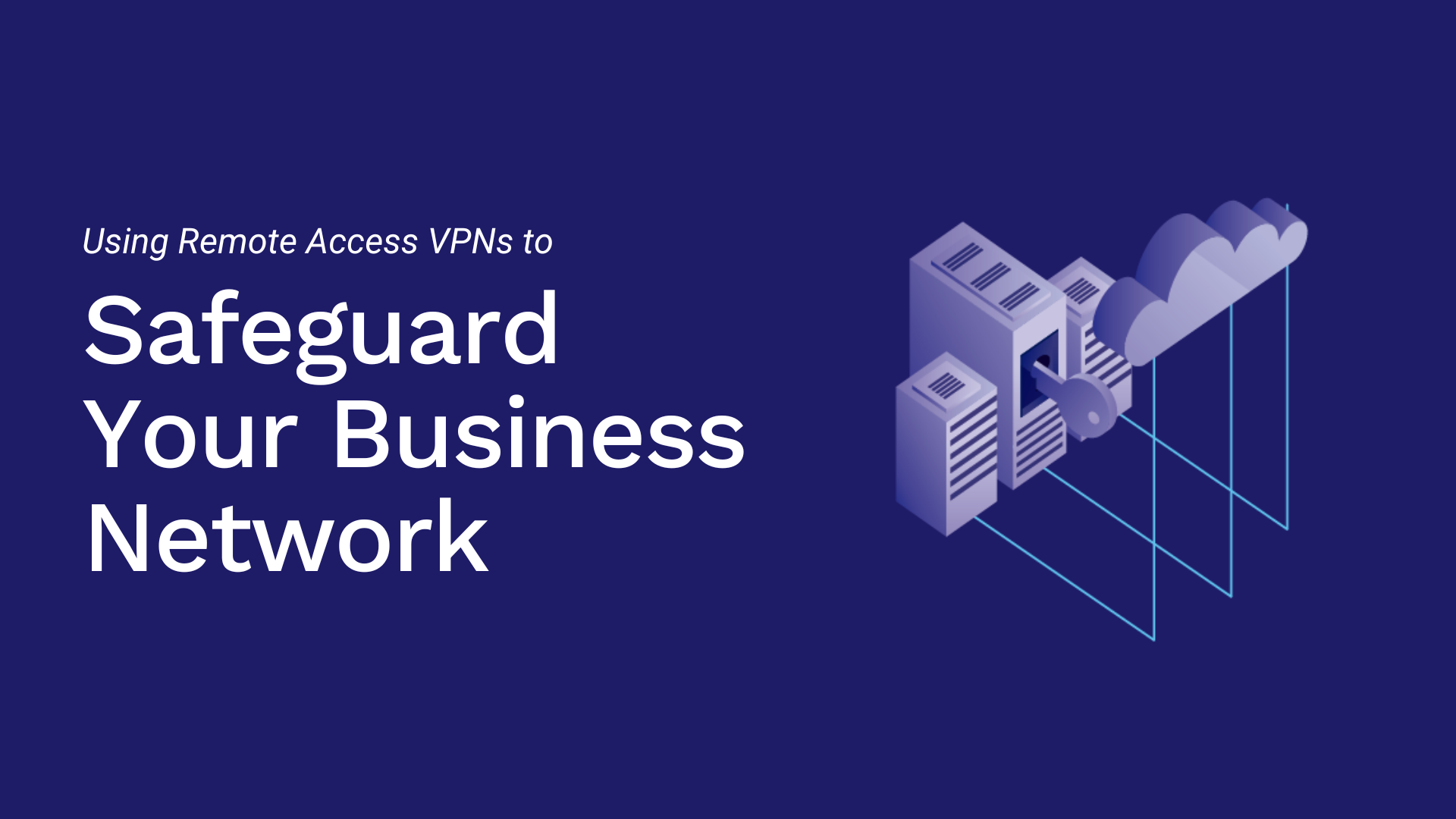
Using Remote Access VPNs to
Safeguard Your Business Network
In today’s increasingly digital world, securing your business network is more critical than ever. With the rise of remote work and cyber threats, businesses must prioritize solutions that provide both accessibility and robust security. A Remote Access VPN (Virtual Private Network) is one such solution that empowers employees to connect to the company’s network securely from anywhere. This article explores the role of remote access VPNs, how they work, and why they’re essential for safeguarding your business network.
What is a Remote Access VPN?
A Remote Access VPN allows employees to securely connect to a private business network over the internet. It establishes an encrypted tunnel between the employee's device and the corporate network, ensuring data confidentiality and protection against cyber threats.
Unlike site-to-site VPNs, which connect entire networks, remote access VPNs are designed for individual users, making them ideal for businesses with remote or hybrid workforces.
How Do Remote Access VPNs Work?
Authentication: Users first authenticate their identity through credentials such as usernames, passwords, or multi-factor authentication (MFA). Some VPNs also use digital certificates for added security.
Secure Connection: Once authenticated, the VPN establishes an encrypted tunnel between the user's device and the company’s network using protocols like OpenVPN, IKEv2, or WireGuard.
Data Encryption: All data transmitted through the VPN is encrypted, preventing unauthorized access even if the data is intercepted.
Network Access: The user gains access to company resources, such as files, applications, or intranet services, as if they were physically present in the office.
Key Benefits of Using Remote Access VPNs
1. Enhanced Security
Data Encryption: VPNs encrypt data, ensuring sensitive information like customer records, financial data, or intellectual property remains secure during transmission.
Protection on Public Wi-Fi: Remote workers often rely on public networks, which are prone to attacks. A VPN shields their connection from hackers and malware.
Reduced Risk of Data Breaches: With a secure connection, businesses minimize the risk of unauthorized access or interception of sensitive data.
2. Employee Productivity
Employees can securely access the tools and information they need from anywhere, boosting efficiency and ensuring seamless workflows.
3. Cost-Effective Security
Compared to physical security infrastructure, remote access VPNs offer a scalable and cost-effective way to secure a distributed workforce.
4. Regulatory Compliance
Industries like finance, healthcare, and legal services are subject to strict data protection regulations. VPNs help businesses meet these standards by encrypting data and safeguarding customer information.
5. Centralized Control
IT administrators can manage access permissions, monitor VPN usage, and enforce security policies to ensure compliance with company guidelines.
Conclusion
A remote access VPN is a powerful tool for safeguarding your business network while enabling a flexible and efficient workforce. By encrypting data, securing connections, and providing centralized control, VPNs mitigate cyber risks and support seamless remote work.
To maximize the benefits of a remote access VPN, invest in a solution that aligns with your business's needs and follow best practices to ensure security and compliance. In a world where remote work is the norm, a reliable remote access VPN is not just an option—it’s a necessity for modern businesses.
Ready to safeguard your business with a reliable remote access VPN?
Explore our solutions and get started today!

 Cart is empty
Cart is empty